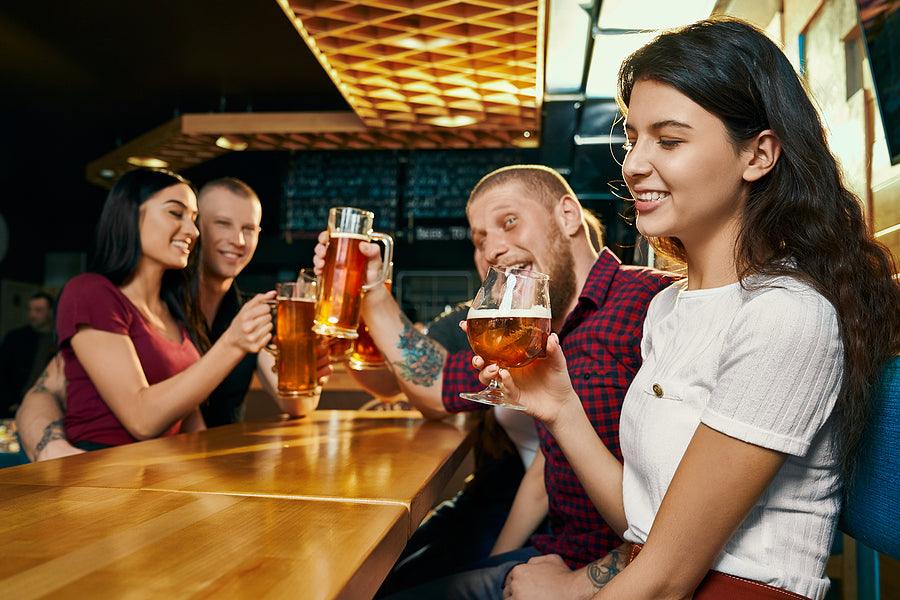
There has been a long history of abstinence from alcohol in the UK, and there was once a huge temperance movement that began in Lancashire in the early 19th-century, with alcohol-free temperance bars opening across the region by the end of the 1800s.
Si King and Dave Myers, aka the Hairy Bikers, began their new TV series, The Hairy Bikers Go North, by heading to Lancashire, the red rose county, and visited Mr Fitzpatrick's bar in Rawtenstall, the last Lancashire temperance bar, which still serves up alcohol-free shots such as sarsaparilla, cream soda, dandelion and burdock.
We wanted to have a brief look at the temperance movement and why it is still relevant today.
Mr Fitzpatrick’s has endured its share of crises in its 122-year history, including two world wars, the Spanish Flu pandemic, and the continuing COVID-19 pandemic to name just a few.
However, as Ashleigh Morley-Doidge, the owner of the bar, is contractually obliged not to serve any alcohol, Mr Fitzpatrick’s was able to stay open and serve non-alcoholic beverages during the pandemic.
Ashleigh says business is as good as it has always been since she took over the bar five years ago, and her family also operate a separate company brewing the cordials and now regularly supply the US, the United Arab Emirates, Europe and Japan. Here as well, demand is on the rise.
“It is really interesting to see how many people don't drink alcohol and are looking for something unusual and different,” says the 35-year-old.
Fitzpatrick's Bar was one of 40 established across the North West by the Fitzpatrick family, who moved from Dublin in 1899.
By that time the temperance movement was at its peak, as the first temperance hotel had been opened in Preston in 1833 by reformer Joseph Livesey, who coined the term ‘teetotal’.
The temperance movement was also one of the first ways in which women entered the political realm. The British Women's Temperance Association was set up in 1876 and at its height in 1892 had 577 affiliated branches, with a total of 45,000 members.
It has been estimated that by 1900 about a tenth of the adult population in the UK were total abstainers from alcohol, and despite the waning popularity of the temperance movement in the early 20th century, overall alcohol consumption among adults in Britain continued to decline.
It was only in the late Sixties, with the rise of a new consumer generation, supermarkets and foreign holidays, that drinking started to steadily increase. However, in recent years there has been a marked drop, and particularly among the young, with 30 per cent of 16 to 24-year-olds saying they do not drink alcohol in a 2018 survey.
At Fitzpatrick's bar, Ashleigh Morley-Doidge has compared her customers with her own teenage years in the town.
“When we were young we got trolleyed because it was cool,” she says.
Now she regularly gets teenagers and 20-somethings propping up the bar for a sarsaparilla milkshake.
With drinking increasing during the lockdown, with many turning to drink as a coping mechanism, experts are predicting that the pre-pandemic trends of abstinence, especially among young people, will increase as people focus more on their health.
If you’re looking for alcohol-free drinks, visit our online store today.
